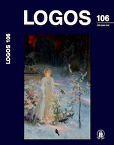Krikščioniškos šeimos pašaukimo vizija Jono Pauliaus II mokyme
The Vision of Christian Family Vocation in the Teaching of John Paul II
Author(s): Rasa Račiūnaitė-PaužuolienėSubject(s): Christian Theology and Religion, Family and social welfare
Published by: Visuomeninė organizacija »LOGOS«
Keywords: Vocation of the Christian family; John Paul II; teaching;
Summary/Abstract: This article examines the vision of the Christian family vocation in the teaching of Pope Saint John Paul II. Attention is given to the concept of a Christian family, which is conceptualized in two ways – as a married couple and as a Universal Church, i.e. the People of God. The article deals with the problem of the purpose and mission of a Christian family in the modern world. How do Christian women or men understand their purpose in families and society to which they belong? How does one succeed in being „salt of the earth“, how does one maintain their Christian identity persevering as a good Catholic, Christian and spouse? The analysis of the teaching of John Paul II emphasizes that the family vocation is closely intertwined with the vocations of man and woman and helps to disclose their differences through the communion of two persons. The gift that a man and woman give to each other as spouses performs both the function of procreation the Creator assigned to them and enables them to fulfil their union of love and life. In Gratissimam Sane John Paul II encourages spouses not to fear the demanding and true love which „creates the good of persons and of communities; it creates that good and gives it to others“ (GS 1994, 14). The pope emphasizes also a significant role of the family as a domestic church, urging spouses to pray for their family’s vocation. The main mission of a Christian family as the Universal Church is to preserve the treasure of faith; to engage in a new evangelization process involving not only individuals but also groups of people; to establish an interreligious dialog. Thus, Christian education is perceived as a constant process of personal maturity and identification with Christ.
Journal: LOGOS - A Journal of Religion, Philosophy, Comparative Cultural Studies and Art
- Issue Year: 2021
- Issue No: 106
- Page Range: 184-191
- Page Count: 8
- Language: Lithuanian

